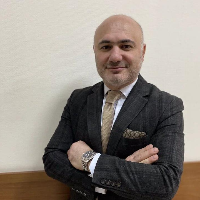3rd Global Summit on
Heart and Cardiovascular Care
November 26-27, 2026 | Dubai, UAE

Heart Congress 2026

National Research Center for Therapy and Preventive Medicine, Russia
Abstract:
In most regions of the world, the main cause of death in adults is complications of cardiovascular diseases (CVD), among which coronary heart disease and stroke occupy key places. Over the past decades, a significant decrease in cardiovascular mortality has been observed globally. In general, over 32 years (1990-2022), a decrease in cardiovascular mortality by an average of 38.5% has been observed in 12 regions of the world. In regions with a high level of economic development, this dynamics is more significant compared to countries with a low level of economy. The greatest reduction in CVD mortality is observed in Australia, the Asia-Pacific region and Western Europe, with an average mortality dynamics of 63% over 32 years. According to data from 2022, CVD mortality in these countries ranges from 81.6 to 191.7 cases per 100,000 population. A similar picture is observed in the North America region and in tropical Latin America. It should be noted that in the Central European region, the mortality dynamics are quite pronounced, but on the other hand, in some countries, CVD mortality is quite high in 2022. In the Central Asian region, the mortality dynamics over the observed period were 3-4 times lower compared to the above regions. A similar situation is observed in Central Africa and Southeast Asia. According to experts, health policy should focus on the risk factors that are most important in specific groups of countries. In regions with high economic development, a significant part of cardiovascular complications can be prevented through optimal control of metabolic and behavioral risk factors. In regions and countries with low and medium economic development, the greatest benefit can be expected from restricting smoking, controlling hypertension and investing in health care, including increasing the availability of drugs for prevention, and using high technologies for the treatment of CVD.
Biography:
Dr. Mamedov was born on January 10, 1970, in Sheki, Azerbaijan, and is a distinguished Azerbaijani cardiologist based in Moscow, Russia. He completed his medical education at the Moscow Medical Academy named after I.M. Sechenov, followed by postgraduate and doctoral studies in cardiology at the National Research Center for Preventive Medicine. Since 2002, Dr. Mamedov has led the Department of Secondary Prevention of Chronic Non-infectious Diseases at the National Research Center for Therapy and Preventive Medicine. His research focuses on cardiovascular disease epidemiology, risk factors, and pharmacotherapy. Dr. Mamedov has authored 468 articles, 13 monographs, and holds a Hirsch index of 40. He serves as the President of the Cardioprogress Foundation, is on the board of the Russian Society of Cardiology, and is Editor-in-Chief of the International Journal of Heart and Vascular Diseases.
